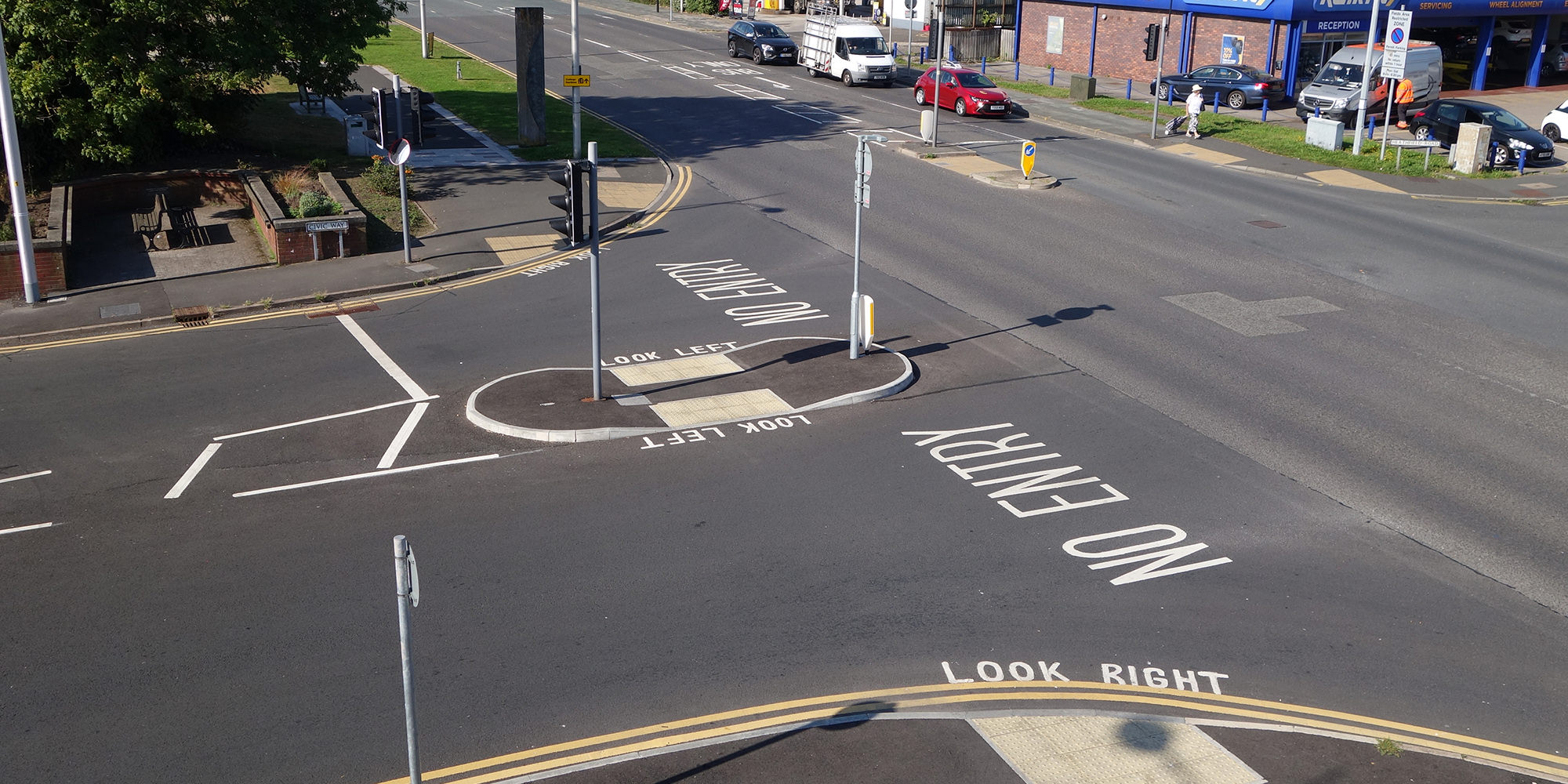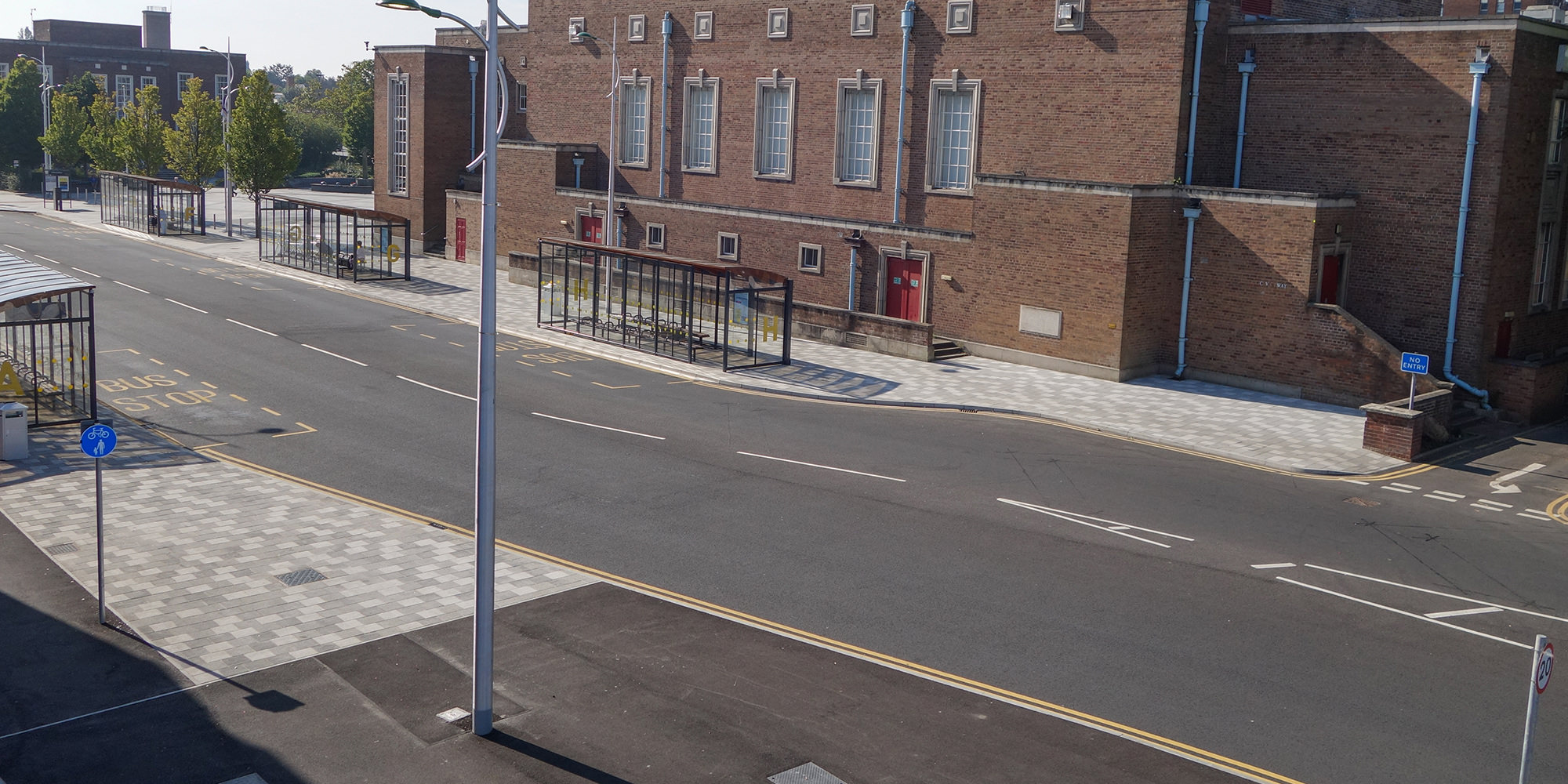As part of a regeneration plan to transform Ellesmere Port town centre, we were tasked with the redevelopment of Civic Way and a
Phase 1 required the construction of an improvement to a layby on Marina Drive with the addition of a mini roundabout, which was to be completed in advance of the main works on Civic Way. The principal works consisted of constructing 8 new bus laybys and installing bespoke bus shelters with real-time information displays and specialised aluminium lighting columns to replace the existing bus station that was to be demolished. Footpaths were constructed with high-quality precast concrete paving, and the carriageway was partially reconstructed and resurfaced to help aesthetically enhance the surroundings and widen the road for the two-way bus flow. Additional work was agreed on post-tender involving a sewer diversion on the main carriageway located outside the existing bus station. With new bus stands, new technology, and safer, weather-shielding spaces, the new hub aimed to significantly improve the welcoming environment for people coming into Ellesmere Port.
The Client required a contractor that could collaborate to run side by side with them during the designing process, to help develop and finalise designs from basic guidelines and an outline cost. This process saved time and helped them stay on programme through a great deal of early contractor involvement, whereby we spent the next 8 months negotiating and redesigning the scheme to fit their budget and changing requirements. During the designing process, we recognised an opportunity to drastically improve the longevity of the project through an innovative design. We drew from our expertise to put forward a specialist material for the final surface course that would tolerate particular characteristics of buses. A bus often parks in the same laybys with the engine still running and spills diesel which is then spread by tyre tracks and dissolves the tarmac over time. We used our initiative to put forward a surface course material that could prevent this harmful process whilst also reducing the curing time from 7 days to 4 hours, helping to significantly reduce traffic disruption.
As the redevelopment works were located in a busy central environment, our main challenge proved to be the logistical complications that came with working in a town centre. We opted to hold daily briefings to set daily goals and solve logistical issues so that the whole team was informed and cooperated efficiently as one unit. We opted to carry work out in smaller phases so that full access was maintained to live shops on Marina Drive whilst also informing business owners daily on our progress.
Through a great deal of Early Contractor Involvement, we managed to save the Client significant costs through our value engineering solutions, reducing the budget from £1.7m to £1.3m. By implementing these solutions as well as innovative design changes, we delivered our main works within a few days of the programme and finished additional sewage works within the revised programme.













